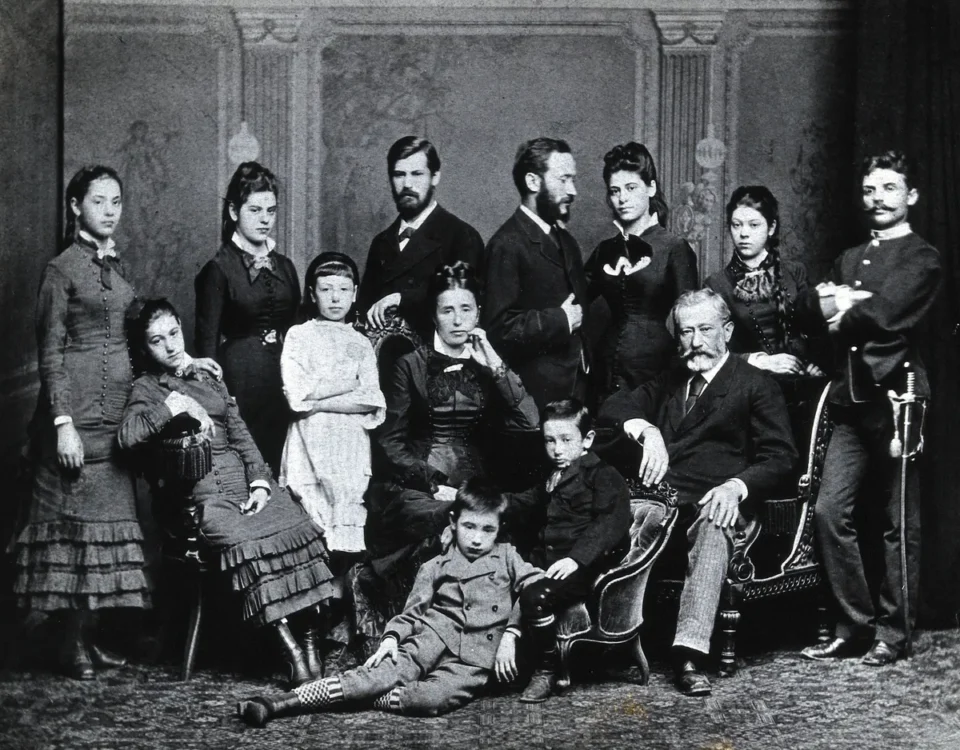
The Ultimate Guide to Writing a Compelling Residency Application Essay (2025)
April 10, 2025
Residency Prep 101: Expert Tips for Interviews, Program Ranking, and Transition Planning
April 11, 2025Summary (TL;DR)
Consider your comfort level with patient interaction; specialties like Pathology offer minimal contact, while Family Medicine emphasizes long-term relationships. Work-life balance varies by specialty, with fields like Pathology providing flexibility and others, like Surgery, demanding irregular hours.
Assess your personality traits using tools like the MBTI test to find compatible specialties. Visualize the types of outcomes you’d enjoy daily, whether quick interventions (e.g., ENT) or chronic care (e.g., Internal Medicine). Family Medicine offers variety and continuity, Pathology provides work-life balance and lab-based learning, and ENT combines medicine, surgery, and technology for diverse, tangible results.
Ultimately, thoughtful introspection and mentorship are key to making a fulfilling choice.
One of the most challenging decisions for medical students is selecting the specialty they will dedicate their careers to. This decision requires not only passion but also a long-term commitment to continually improving as a physician. As someone who has navigated this process, I know firsthand how daunting it can be. However, reflecting on certain questions helped me gain clarity and confidence in cementing my choice. In this article, we’ll explore key considerations such as rotations, patient contact, work-life balance, personal skills, and desired outcomes—all while drawing insights from various specialties like Family Medicine, Pathology, Otorhinolaryngology (ENT), and more.
Which Rotations Excite You the Most?
One way to start narrowing down your options is by reflecting on which rotations excite you during your clinical years. Think about the rotations that genuinely make you want to get up in the morning instead of hitting the snooze button repeatedly. For example, did you enjoy Emergency Medicine for its fast-paced nature or Internal Medicine for its intricate problem-solving?
It’s important to analyze why you enjoyed these rotations. Was it because of the field's environment, the types of patients, or the intellectual stimulation? One piece of advice that always resonated with me was to look beyond rare anomalies and focus on the "bread and butter" cases—the everyday scenarios that define the specialty. Could you imagine yourself doing this day in and day out for decades? Would you strive to excel and stand out in this field?
Additionally, don’t hesitate to ask the physicians you rotate with what they love—and dislike—about their specialty. This insight provides an edge when making unbiased decisions, ensuring you weigh the pros against the cons. Take Emergency Medicine, for instance. Do you thrive in high-pressure situations? Are you comfortable managing interruptions efficiently and communicating effectively? If so, EM might align well with your personality. Conversely, if you're drawn to the precision of surgical procedures or the investigative nature of pathology, those fields may better suit your strengths.

Level of Patient Contact and Continuity
Another critical factor to consider is your comfort level with direct patient interaction. Some specialties involve minimal patient contact, such as surgical fields, pathology, and anesthesiology. These roles often appeal to introverts or those who prefer analytical tasks over interpersonal engagement. On the other hand, specialties focused on long-term patient care and continuity, like Family Medicine, Internal Medicine, and Pediatrics, attract individuals eager to build lasting relationships with their patients.
Family physicians, often referred to as 'pluripotent stem cells,' adapt to meet diverse needs. They manage a wide range of cases daily—from diabetes follow-ups to IUD insertions—and form lifelong bonds with patients and families. Imagine delivering multiple generations within one household; this continuity fosters trust and understanding between doctor and patient. If fostering holistic care appeals to you, Family Medicine could be ideal.
Conversely, if immediate interventions and tangible results excite you, specialties like ENT or Emergency Medicine offer quick resolutions. Consider whether you’d prefer seeing patients walk out cured after a procedure or developing ongoing treatment plans based on chronic conditions.
Work-Life Balance: Prioritizing Short-Term Goals Without Neglecting Long-Term Ones
Many students overlook work-life balance during medical school and residency, immersing themselves entirely in their studies. While dedication is crucial, envisioning life post-training is equally vital. Topics like marriage, children, hobbies, and lifestyle diversification become significant once you’re practicing independently. Each specialty carries unique demands regarding hours worked and burnout rates.
Pathology offers remarkable flexibility, allowing practitioners to tailor schedules around personal goals. Whether transitioning part-time during parenthood or shifting toward academia, pathologists enjoy adaptable lifestyles. Similarly, Family Medicine balances direct patient care with teaching opportunities, providing variety without compromising personal time. Conversely, specialties requiring extensive surgeries or emergency response might demand irregular hours, impacting family dynamics.
Ultimately, consider both short-term ambitions and long-term aspirations. What kind of lifestyle do you envision five, ten, twenty years down the line? Aligning your specialty choice with these visions ensures sustained satisfaction and prevents burnout—a common issue among overly taxed professionals.

Assessing Your Own Skills: Tapping Into Personality Traits
Don’t shy away from evaluating your personality traits when considering specialties. Your innate abilities significantly influence your effectiveness and happiness within a chosen field. Reflect on feedback received throughout training—are you described as empathetic, detail-oriented, logical, or innovative? Such qualities shape how you approach patient interactions and problem-solving.
For instance, being labeled a “people person” might steer you towards primary care, where building rapport enhances patient experiences. Alternatively, enjoying puzzles and diagnostics suggests aptitude for fields like Pathology or Neurology. Remember, each specialty attracts distinct personality types. Studies using tools like the Myers-Briggs Type Indicator (MBTI) reveal correlations between personality profiles and preferred medical disciplines. Understanding where you fit helps streamline decision-making.
Consider taking the MBTI test yourself. It classifies personalities under 16 categories based on four dichotomies: Introversion vs. Extraversion, Sensing vs. Intuition, Thinking vs. Feeling, Judging vs. Perceiving. Based on these classifications, specific specialties naturally align with particular temperaments. Use this information alongside introspection to identify compatible paths.
What Type of Outcomes Are You Comfortable With?
Not everyone thrives amidst severe traumas or complex surgeries daily. Equally, treating routine ailments like headaches or colds might bore some practitioners. Visualize typical cases encountered in prospective specialties—would you feel fulfilled addressing them regularly? Surgeons relish intricate operations restoring functionality, whereas Preventive Medicine specialists prioritize education and health promotion strategies.
ENT specialists experience gratification through swift diagnoses and cures, employing maneuvers like Dix-Hallpike and Epley techniques to alleviate vertigo symptoms rapidly. Meanwhile, Pathologists uncover answers hidden beneath microscopes, unraveling mysteries invisible to others. Both approaches yield profound impacts albeit differently.
Choose a specialty whose routine challenges invigorate rather than drain you emotionally and mentally. Realistic expectations prevent disillusionment later.
Why Family Medicine Might Be Right for You
If exploring numerous areas intrigued you during rotations yet left you indecisive, Family Medicine could be the answer. Often likened to ‘jack-of-all-trades,’ family practitioners handle varied cases spanning all ages and stages. From managing chronic illnesses to performing minor procedures, versatility defines this field.
Continuity of care stands central to Family Medicine philosophy. Physicians develop deep connections with patients, knowing histories comprehensively. This holistic perspective enables personalized treatments tailored specifically to individual needs. Additionally, preventive measures underscore practice principles, emphasizing healthy habits reducing disease risks.
Flexibility characterizes Family Medicine too. Opportunities abound across outpatient settings, hospitals, academic institutions, and research arenas. No two days mirror identically due to fluctuating responsibilities involving consultations, procedures, teaching duties, and scholarly pursuits. Balancing professional growth with personal fulfillment proves achievable here.
Conclusion
Selecting a medical specialty involves deliberate reflection weighing multiple factors holistically. By assessing rotation preferences, patient interaction levels, work-life equilibrium, skillsets, anticipated outcomes, and intrinsic motivations, clarity emerges gradually. Regardless of chosen path, remember medicine embodies lifelong learning journey demanding dedication unwaveringly. Embrace uncertainties confidently, trusting instincts guiding ultimate destiny fulfilling personally professionally simultaneously.

Topic FAQs
Take Your Medical Education to the Next Level with Physeo
Whether you're preparing for Step 1, Step 2, or striving to become a more confident and compassionate physician, Physeo is here to support your journey. Our resources are designed to help you master complex concepts, stay motivated, and achieve your goals.
📚 Unlock Premium Study Tools
Dive into our comprehensive video lessons, image mnemonics, and proven study plans tailored for success. Check out Our Plans to explore subscription options and find the perfect plan for your needs.
💡 Stay Inspired with Our Blog
Looking for tips on excelling in medical school, overcoming burnout, or balancing life as a student or professional? Check out our Blog. It’s your go-to resource for actionable advice and stories from fellow medical students and professionals.
📺 Boost Your Learning with Our YouTube Channel
Prefer learning through videos? Subscribe to our YouTube channel for free tutorials, step-by-step explanations, and expert insights to help you ace your exams and thrive in your medical career.
📱 Connect with Us on Social Media
Stay updated, inspired, and connected with Physeo across our social media platforms:
- Instagram: Follow us on Instagram for daily motivation, study tips, and behind-the-scenes content.
- Facebook: Join our community Here for updates, discussions, and support.
- LinkedIn: Connect with us professionally at LinkedIn for industry insights, career advice, and networking opportunities.
🚀 Ready to Excel?
Invest in yourself and your future patients by joining the Physeo community today. Let’s work together to create a generation of healthcare providers who lead with knowledge and compassion.
Start Your Journey NowAuthor
Sarrah Fadul, Fatima Alam and Paula Danika A. Binsol
Content Creators
Latest articles
Our newsletter
- Work-Life Balance
- USMLE Prep
- Study Tools
- Stress Management
- Spaced Repetition
- Residency Applications
- Physeo
- Personal Growth
- Pathology Education
- OB/GYN Specialty
- Nutrition
- Neuroscience
- Mental Health
- Medical School Tips
- Healthcare Innovation
- Global Health
- Fitness & Wellness
- Faith & Medicine
- Doctor-Patient Relationships
- Creativity in Science
- Career Planning
- Anatomy Mastery












